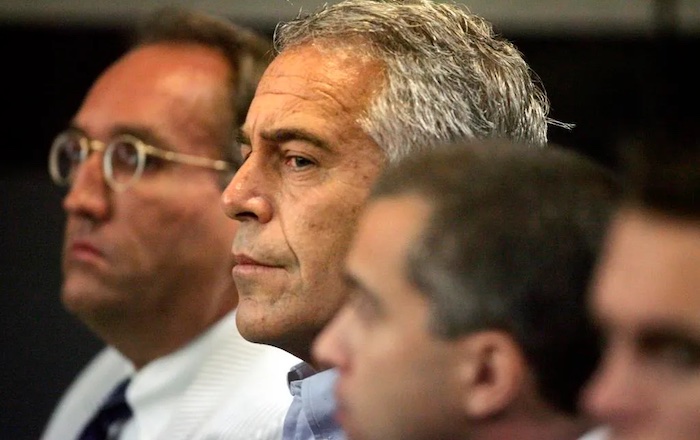• Delivers 5,075.4km as N3 trillion are abandoned
• FG explores alternative funding arrangement for stalled projects
• Stakeholders allege subnational construction amidst inter-govt conflict
Seven years into Nigeria’s Road Tax Credit Scheme, the programme may be grappling with survival crises, with many projects valued at N3 trillion, according to the latest data from the Minister of Works, stalled by multiple crises.
Newspaper subscription bundlesFirst, there is a face-off between federal and state governments, with the latter alleging that the scheme is skewed to their detriment, with federal roads being executed with the federation’s resources.
Community-related crisis, sharp rise in the cost of construction and sundry challenges also add to the challenge, triggering abandoned projects across the country.
The Federal Government said it is auditing ongoing projects under the scheme even as President Bola Tinubu has directed the Minister of Works, David Umahi, to explore alternative funding options, including public-private partnership (PPP), to deliver the abandoned roads.
Already, N2.6 trillion has been spent under the 10-year scheme, which was described as a game-changer in bridging Nigeria’s infrastructure gap, estimated at $3 trillion yearly spending.
The Nigerian National Petroleum Company Limited (NNPC), Dangote Group, BUA and NLNG are among the companies participating in the programme.
Newspaper subscription bundlesThere are concerns by the subnational governments who alleged that federation funds are being diverted to fix federal roads in breach of the extant law, a situation that may be depleting the net value available for disbursement by the Federation Account Allocation Committee (FAAC).
Participating companies get tax credits equivalent to their expenditure on road construction or rehabilitation under the scheme.
The inter-government conflict is undermining the gains of the scheme and threatening its prospects, as some organisations have already withdrawn from the scheme.
Report by FAAC’s Post-Mortem Sub-Committee for July, covering February 2024 to May 2025, revealed that NNPC’s taxes were channeled to the scheme through the Federal Inland Revenue Service (FIRS) under the Joint Venture (JV) Gas Companies’ Income Tax (CIT) obligations, a development that did not sit well with the state governments.
Stakeholders told The Guardian that substandard project delivery, host community conflicts and a shaky policy foundation are threatening the initiative, even as claims persist that Nigeria would require about $120 billion (over N180 trillion or nearly four times its current annual budget) just to rehabilitate the federal road network.
Newspaper subscription bundlesWith the devaluation of the naira, project costs have ballooned, forcing many private organisations back to the drawing board as they struggle to defray trillions in potential losses.
For years, Nigerians have raised concerns over the real benefits of their taxes. The road tax infrastructure scheme, introduced through an executive order signed by the late former President Muhammadu Buhari in 2019, enables corporate entities to offset tax liabilities by constructing or refurbishing dilapidated roads across the country.
Under the arrangement, companies that built or rehabilitated approved roads could recover costs through tax credits against future income tax obligations.
Participating companies also stand to get a single non-taxable uplift equivalent to two per cent cost of the project in line with the monetary policy rate.
Investigations by The Guardian showed that NNPC Ltd was the largest contributor to the scheme, as records from FAAC revealed that the company disbursed $577.6 million and N822.3 billion, totaling N1.7 trillion within 16 months, to finance road projects.
Newspaper subscription bundlesEarlier, the Federal Executive Council (FEC) approved N1.9 trillion for NNPC to construct 44 roads spanning 4,554 kilometres nationwide.
BUA Group has also secured approvals totaling N415 billion, including N115 billion for the 132-kilometre Kano–Kazaure–Kongolam Highway and N330 billion for four additional projects in the North.
Another major participant, Dangote Group, has successfully delivered the 34-kilometre Apapa–Oworonshoki–Ojota Expressway in Lagos, for which it received tax credit certificates valued at N22.32 billion.
In 2021, the FEC awarded Dangote Industries five additional road contracts valued at N309.9 billion across 274.9 kilometres. These include the Bama to Banki road in Borno state, a 49.15-kilometre stretch awarded for N51.02 billion; the 49.58-kilometre Dikwa to Gamboru-Ngala road, also in Borno, at the cost of N55.5 billion and the 21.48-kilometre Nnamdi Azikiwe Road in Kaduna state at N37.56 billion.
Others are sections 1 and 3 of the deep seaport access road in Lagos, through Epe to Sagamu Expressway, spanning 54.24 kilometres and linking Lagos and Ogun states at N85.84 billion, as well as the 100-kilometre Obele/Ilaro/Papalanto to Sagamu road also in Ogun at N79.99 billion.
Dangote had earlier constructed the 43-kilometre Obajana–Kabba Road in Kogi state, whose actual cost has remained undisclosed.
Other companies, such as MTN Nigeria, Access Bank, NLNG and GZI Industries, were allocated road projects, including the N200 billion 35.7-kilometre Bodo–Bonny road in Rivers state and the 1.8-kilometre Oniru Road in Lagos.
Newspaper subscription bundlesDespite the huge sum spent on the scheme, the impact on road infrastructure is limited. Many projects, including sections of the East–West Road, Port Harcourt–Onne Junction, Nembe–Brass Road and the Yola–Mubi–Maiduguri corridor, are not to be completed.
Umahi said the government requires about N3 trillion to complete road projects already awarded under the tax credit programme, a figure fueled by naira devaluation.
According to him, Tinubu has directed the ministry to explore alternative funding models in financing the NNPCL-abandoned road projects, adding that a list of affected road projects was being compiled and would be evaluated under a public-private model.
“The Federal Government requires N3 trillion to complete the road project it awarded under the NNPC tax credit scheme”, Umahi hinted during a briefing, where he sought to dismiss reports of cracks on the controversial Lagos-Calabar Coastal Highway.
State governments have opposed NNPC’s deductions from its Federal Inland Revenue Service (FIRS) remittances, arguing that it was the Federal Government’s responsibility to fund highways. Under FAAC, revenue is shared among the federal, state and local governments in line with the allocation formula.
Subnational governments have also argued that the deductions have short-changed them, reducing their projected revenues.
On the other hand, stakeholders have pointed to the absence of a robust legal framework, expressing concerns about transparency and contradictions with FIRS’s constitutional mandate to collect and remit all taxes into the federation account.
Earlier this month, NNPC Ltd formally withdrew from the programme, citing its new commercial mandate under the Petroleum Industry Act (PIA) and the need to focus on its core business.
Its exit casts fresh doubt on the scheme’s future, with the government currently exploring PPP as an alternative funding model.
Checks revealed that some of the roads in the second phase of the scheme abandoned by NNPC include the East-West road, spanning Warri, Port Harcourt, Ahoada and Eket; the Port Harcourt–Onne Junction upgrade, the Eket bypass, as well as the construction of the Nembe–Brass road in Bayelsa state.
The North-East region was supposed to receive major rehabilitation work, including the Yola–Mubi–Maiduguri corridor, Numan–Jalingo, Bali–Serti–Gashaka–Gembu route in Taraba and stretches in Bauchi state.
In the North-Central, relevant projects include parts of the Minna–Zungeru–Tegina–Kontagora axis and sections of the Lokoja–Benin road, spanning Obajana to Benin city.
Speaking with The Guardian, a constructor at the Benue State Ministry of Works, Mike Owoicho, said the tax credit scheme was built on a shaky foundation and failed to consider seemingly small but important issues, such as engagement with host communities. He said the scheme also created room for substandard work.
“What I have found is that most of the projects under that scheme were either not handled by professionals or they were executed without proper supervision. They also failed to consider the reactions of host communities.
What was their involvement? Even the actual costs of the projects could not be ascertained.
“Acknowledging that the scheme was well intentioned, it lacked a proper and solid foundation and to that extent, it did not achieve the desired outcome in my opinion”, he added.
A branch chairman of the Nigerian Bar Association (NBA), Polycarp Aande, equally told The Guardian that the scheme fell short of legal requirements.
Newspaper subscription bundles“Former President Muhammadu Buhari meant well, given the state of Nigerian roads, which had become death traps, but he was in a hurry and did not ensure that the scheme had proper legal backing.
“Yes, an Executive Order was good, but the quantum of resources involved also required proper checks and balances. And that did not happen”, Aande noted.
He said the scheme did not factor in accountability and was not designed to outlive the administration that introduced it.
“I can see that in some instances, such as the Obajana road handled by Dangote, it was completed and put to use. So, it served its purpose. But largely, there should have been legal provisions to guarantee accountability and punitive measures”, Aande added.
Kolade Ogundele, an engineer, believes that while the idea of sourcing alternative funding for Nigerian roads is commendable, the scheme would have been better managed if it were executed by the Ministry of Works with input from the Nigerian Society of Engineers and the Council for the Regulation of Engineering in Nigeria (COREN).
Newspaper subscription bundles
According to him, such projects are better handled by professionals “because when you leave out the necessary agencies and institutions that have direct bearing on them, you are likely to have this kind of outcome”.
“There is nothing wrong with wanting to fix roads, but in doing so, you must understand that the relevant stakeholders have to be involved. If the former President had involved the Society of Engineers or COREN, and the Ministry of Works as the supervising institution, perhaps the quality of the work would have been better.
But what I saw was a situation where the companies were left to do as they wished”, Ogundele said.
He added that road construction is not something that should be left entirely in the hands of contractors, alleging that even where there is strong supervision, contractors often cut corners, let alone where there is none.
































